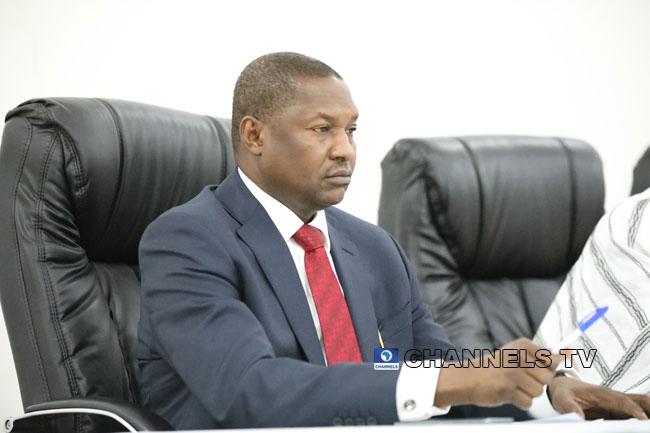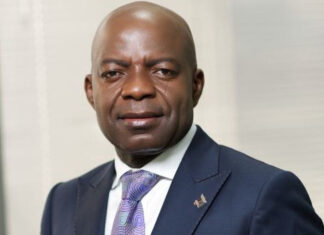By Jeph Ajobaju, Chief Copy Editor
Nigeria will cut oil output to comply with Organisation of Petroleum Exporting Countries (OPEC) targets, but expects huge extra sums from six oil majors as law allows Abuja to review revenue sharing from sales if crude exceeds $20 per barrel (pb).
Federal Attorney General, Abubakar Malami, who spoke about the money, did not state exact figures.
But industry sources confirmed that Shell, Chevron, Exxon Mobil, Eni, Total, and Equinor are each being asked to pay between $2.5 billion and $5 billion.
Their agreement to pay even the minimum $2.5 billion each will fetch the treasury $17.5 billion.
Sticking to OPEC cuts
Nigeria’s September crude oil and condensate output was 2.1-2.2 million barrels per day (bpd), Nigerian National Petroleum Company (NNPC) Managing Director, Mele Kyari confirmed.
“We will (cut) across the assets. The OPEC quota (is) on crude production only, not on condensate, so it doesn’t affect the condensate,” he told reporters at a conference in Fujairah in the United Arab Emirates.
“Our non-conformity is clearly on the crude, and it’s not significant so when you spread it across all the assets it will not be a shock.”
Kyari added that Nigeria hopes to raise oil production to about 3 million bpd in the next two to three years.
OPEC, which has 14 members, agreed in December with non-OPEC partners including Russia to reduce supply by 1.2 million bpd from the start of this year.
OPEC’s share of the cut is 800,000 bpd, to be delivered by 11 members, with exemptions for Iran, Libya, and Venezuela.
A Reuters survey published on September 30 showed that Nigeria pumped beyond its quota by 265,000 bpd in September, more than any other OPEC state.
Iraq, Congo, Ecuador, and Gabon also over-produced but by much smaller margins, the survey found.
Nigeria is also discussing potential investment opportunities with Saudi Aramco and ADNOC of the UAE in Nigeria, and discussing potential petroleum supply with Aramco trading.
Kyari disclosed that the NNPC is exploring the possibility of ADNOC investing in mid-stream pipelines and refineries in Nigeria.
“We are talking to (Aramco Trading) …. We are looking at all opportunities and they are quite keen to supply gasoline to West Africa,” he said.
Demand for extra billions from oil majors
Africa’s largest oil exporter relies on oil for some two-thirds of its revenue and its economy depends largely on crude production despite efforts to diversify the economy.
A law enacted in the 1990s on oil production sharing contracts allows Abuja to review revenue sharing once the oil price rises above $20 pb.
Asked about the demand to recover revenue from international oil companies (IOCs), Malami said the sums in question are “huge”.
“We are taking steps to recover what we feel is due,” he told Reuters, but explained he could not give a precise figure as multiple actions and suits are underway.
“One thing I can say is that the amount is substantial and colossal, there is no doubt about it,” he said, without naming the companies.
Earlier this year, industry and government sources confirmed that Shell, Chevron, Exxon Mobil, Eni, Total and Equinor were each asked to pay Nigeria between $2.5 billion and $5 billion.
But a Shell spokesperson insisted in September that “we do not agree with the legal basis for the claim that we owe outstanding revenues and the matter is pending before the court.”
Oil majors are keen to get involved in developing and operating Nigeria’s giant offshore fields.
In September, Malami was in London as part of a delegation of Nigerian policymakers who met stakeholders and investors as well as attended a court hearing on the $9 billion arbitration case Nigeria disputes.
Central Bank of Nigeria (CBN) Governor, Godwin Emefiele, also part of the delegation, accused oil majors of having dragged their feet on purpose rather than initiating a review once oil prices crossed the $20 pb threshold.
“You think it should be forgotten and we shouldn’t revisit it given that it resulted in substantial loss of revenue to the government?” Emefiele said.
“It stands for me to reason that the IOCs deliberately did not trigger event for review because it benefits them – and that is something that we kick against.”












